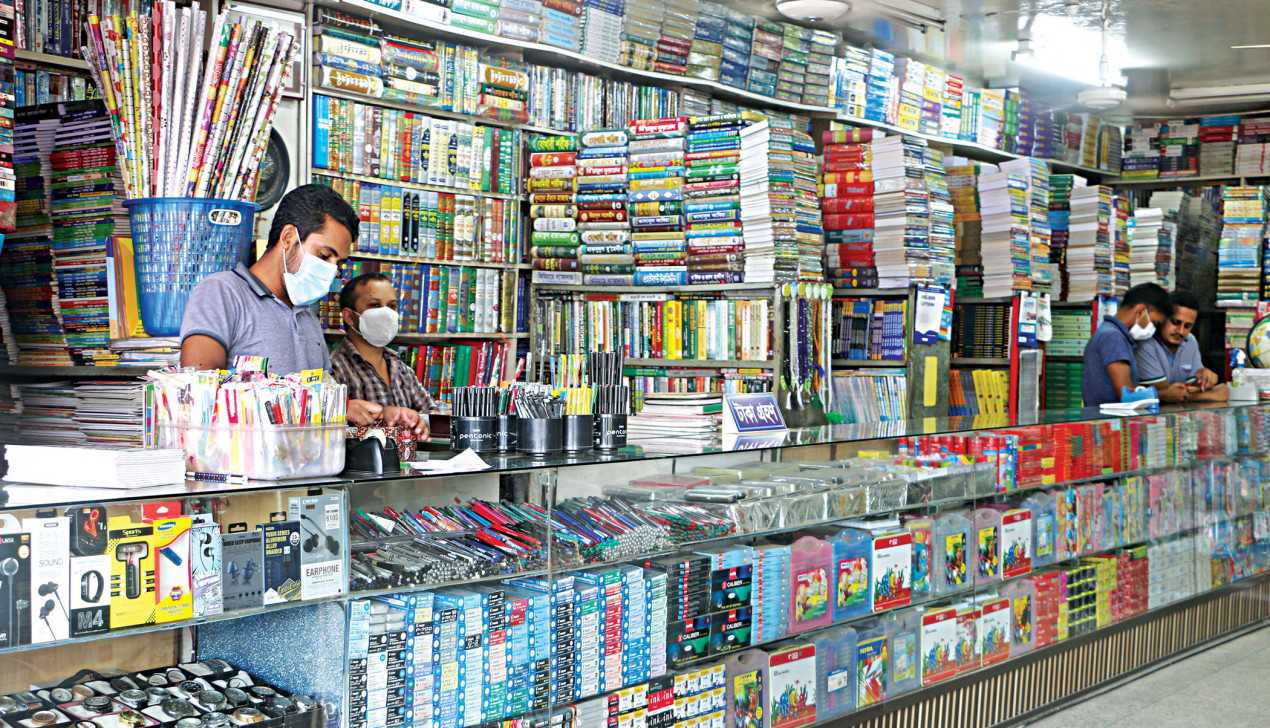Paper mills flounder as demand thins out

Image collected
Regardless of the resumption of economical activities and signs of recovery in various sectors, paper mills are struggling to remain afloat as demand hasn't found yet, say industry operators.
Sales of writing and printing paper, the key product of local mills, slumped 70 per cent to 15,000 tonnes monthly because the detection of the coronavirus on March 8 and eventual closure of schools, colleges and universities.
It had been 50,000 tonnes in the pre-Covid-19 period.
"Sill there is no sign of upsurge in demand," said Md Mustafizur Rahman, deputy managing director of Bashundhara Group which owns one of the country's biggest paper mills.
"We expect some growth from October onward as a result of demand for textbook printing and opportunity of reopening of educational institutions," he said.
Only demand for packaging and tissue paper still looks promising.
Bangladesh has a lot more than 100 paper mills with a capacity of making a lot more than 15 lakh tonnes of paper and paper products annually.
But they may use less than half their capacity as a portion of the annual domestic dependence on around 11 lakh tonnes is met with imported paper and packaging materials.
Rahman, who has been mixed up in paper industry for several years, said a huge number of local mills had already been suffering, even prior to the rise of the Covid-19 pandemic and the state-declared shutdown bringing Bangladesh's high flying economy to its knees since April.
The lockdown and demand fall deteriorated the problem for the struggling mills, forcing almost six to suspend businesses or shut down because the country detected the first person to be infected with coronavirus, according to Bangladesh Paper Mills Association (BPMA).
Bashundhara itself has had to shut down two out of its five units when confronted with the downturn in demand for paper used for writing and printing, said Rahman, who is also the chairman of export and business development standing committee of the BPMA.
"This is a very bad situation. Mills that are in procedure are running at 30 % of their capacity," he said.
"There is no demand for paper and all of us are sitting on piled-up stocks," he said, adding that the industry had a stock of 100,000 tonnes of paper.
There was a period when trucks queued outside the mill gate just looking forward to the products to be accessible for delivery, he said.
As demand shrank, prices of paper dropped to Tk 60,000-Tk 70,000 per tonne down from Tk 90,000, he said.
"It is the direct aftereffect of Covid-19. It'll be very difficult to turn out from the result of the pandemic. The local newsprint industry has completely collapsed while writing and printing paper is on the verge of extinction," he said.
Sharafat Ali, assistant general manager of Amber Super Paper, said the paper industry was highly dependent on demand for writing paper and explainers of textbooks beneath the curriculum for schools and colleges.
Writing and printing paper makes up about nearly 70 % of the full total market for paper, he said.
Ali said books printed by the National Curriculum and Textbook Board (NCTB) for free distribution among school students require roughly 60,000 tonnes of paper annually.
"But we might not be able to sell paper to that extent," he said, explaining that the NCTB will be making purchases of a smaller volume when compared to previous year. "We can not sell below our costing," he added.
"I really do not see any prospect of revival until the opening of school, colleges," he said.
However, Rahman said as a result of the expansion of online learning facilities, the marketplace was unlikely to return to the pre-pandemic period.
"We want to choose exports," he said, adding that it would be possible for them to truly have a decent income by selling to foreign buyers if the government increased the incentive on such business to 15 % from 10 % now.
Sukanta Kumar Saha, assistant general manager for export and international market of Meghna Pulp & Paper Mills, a problem of the Meghna Band of Industries, said orders for export had opted dry since the outbreak of global pandemic.
Prices have fallen as pulp producers are available paper at prices near that of pulp, he said.
"It has put us in tough competition in the international market as local mills need to make paper by importing pulp," he said.
Source: https://www.thedailystar.net
Tags :
Previous Story
- Lost at sea: What sort of surfboard drifted...
- The Musk Method: Study from partners then go...
- Partnerships will drive the economy
- A large number of women domestic employees jobless...
- Demand for paints picking right up again
- Bangladesh economy successful in every areas after Covid...
- BGCCI wants deeper ties with Germany; trade fair...
- UK to aid Bangladesh economy